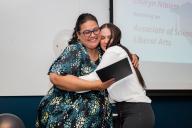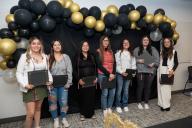Aims Community College held a First-Generation Staff and Faculty Panel in celebration of First-Generation College Student Month.
Category
- Blog Post
Audience
- Alumni
- Faculty
- General Public
- Staff
- Students
First-Gen, First to Blaze a Trail: Stories from Aims Faculty and Staff
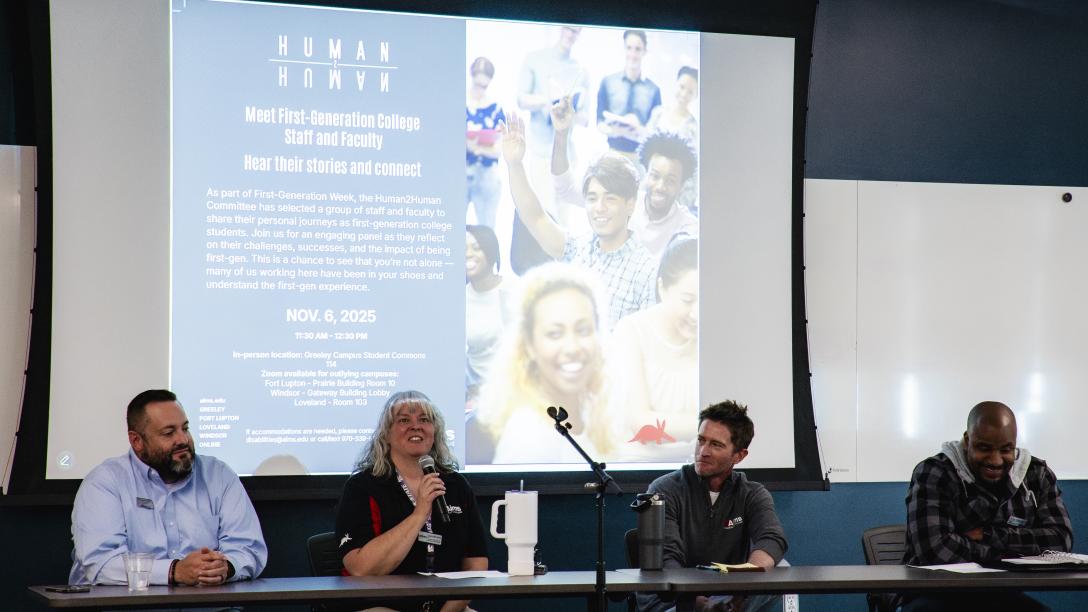
Four first-gen Aims leaders opened up about their paths, the stumbles that nearly derailed them, and the campus resources they wish every student would use. Below is a guide built from lived experience.
Meet the Panel
Dr. Larry Pakowski
Vice President of Student Affairs & Chief Student Affairs Officer
First in his family to earn a bachelor’s degree (and later a doctorate), Larry grew up in a low-income household and outside the family’s “expected” medical path. A four-year campus of 15,000 meant learning to ask for help and finding staff who became anchors. “You don’t learn anything in your comfort zone,” his geology professor told him. This advice nudged him toward a career in communication studies, and eventually, he found a path that opened doors for other students.
Laura Killen-Wing
Instructor of Early Childhood Education & Education Department Chair
Raised in a Kansas farm town of 1,100, Laura knew in fourth grade she wanted to teach. Then she had to figure out how college even works. She left a community where “very few people went to college” and found her voice at Kansas State. The transition wasn’t smooth (“a 1.929 GPA second semester taught me balance”), but connection and curiosity pulled her forward.
Jeremy Rottini
Professor of Psychology
Jeremy loved learning but hated school, barely graduated from high school and flamed out at a university, resulting in academic suspension. An advisor once told him, “College isn’t for everyone.” He took a year off, then tried Salt Lake Community College, which changed everything for him. He learned the “game” of higher ed, found professors who cared and later discovered the name for a feeling that dogged him for years: imposter syndrome.
Ty’ Ray Thompson
Program Manager, Career Services
Ty grew up in San Bernardino, California, in a swirl of instability, foster care, family incarceration and neighborhoods where it was easier to get pulled under than propelled forward. Athletics became his lifeline. After a brief stop at Jackson State, he took a chance on the University of Northern Colorado and rebuilt. Today, he’s the mentor he needed, unyielding about purpose, gentle about how hard this can be.
What Got Them Through
Find one good friend.
Ty’s most practical advice: “Find a really good friend, someone with solid habits who’s engaged on campus. Follow their lead.” A friend can double as a mentor when you’re still learning the ropes.
Hear your writing, don’t just read it.
Jeremy’s go-to tactic: when you think a paper is done, hand it to someone you trust and have them read it out loud to you. Awkward phrasing, fuzzy logic, and grammar stumbles will jump out. Your grade and clarity will improve.
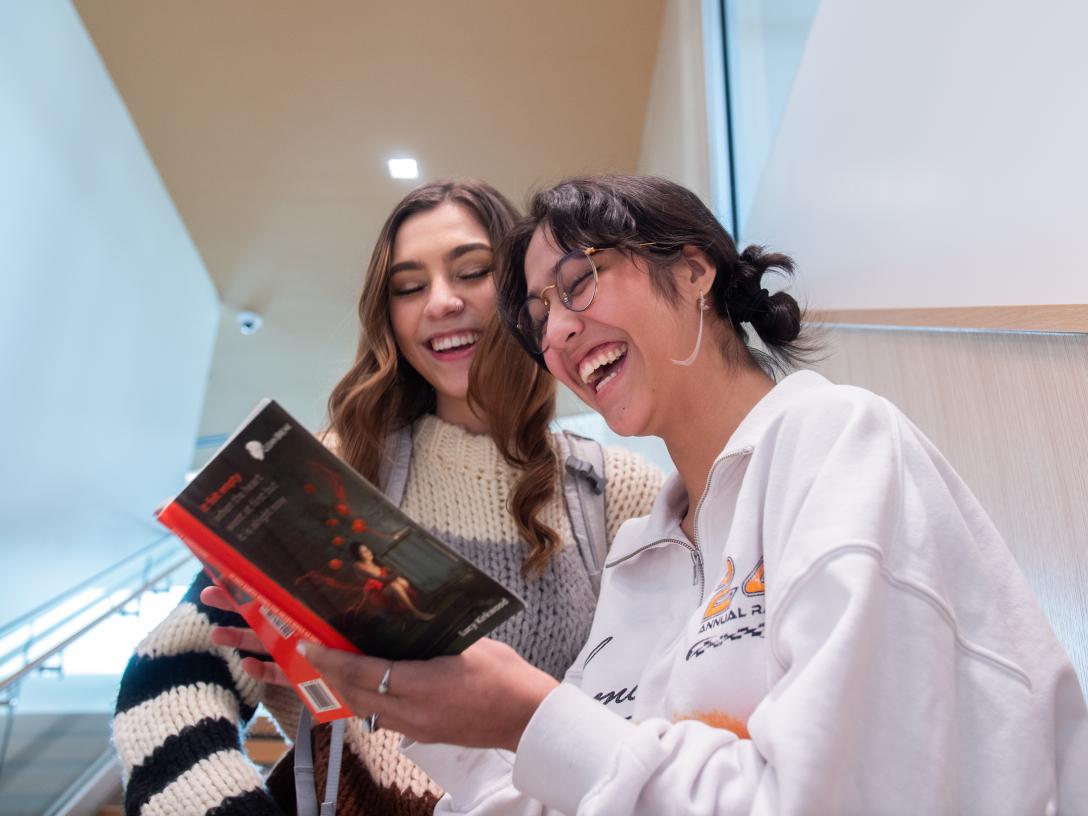
Ask better questions (and schmooze a little).
Laura’s advisor handed her a magic sentence:
“Tell me what you think I need to know that I don’t know I need to know.” It opens doors you can’t see yet. Also? Introduce yourself to instructors, even when you’re doing well. Connection now = grace when you inevitably hit a bump.
Get out of your comfort zone—on purpose.
Larry’s career pivot came from admitting a dream didn’t fit and trying a new class anyway. Discomfort is where you grow; avoidance is where you stall.
Manage time as if it matters, because it does.
Ty wishes he’d learned the basics earlier: map out your week, block out study time and protect it. “Plan your day around what’s important.”
Name imposter syndrome so it doesn’t name you.
Jeremy discovered the term after grad school and realized that most classmates and many faculty feel it at times. Feeling like you don’t belong isn’t proof that you don’t.
The Aims Resources They Want You to Actually Use
New Student Orientation
“Read the instructions before you build the furniture,” Ty says. Orientation is the instructions. It’s where many students first learn about financial aid, student life and how to navigate campus systems without guessing.
Explore Student Life
Jeremy calls out a “loneliness disease.” Belonging doesn’t arrive by email; you have to step into it. Try one event. Bring the friend you just decided to find.
One Scholarship Application
Laura: “You can leave here debt-free.” A single application puts you in the pool for multiple scholarships. It’s simple and wildly underused.
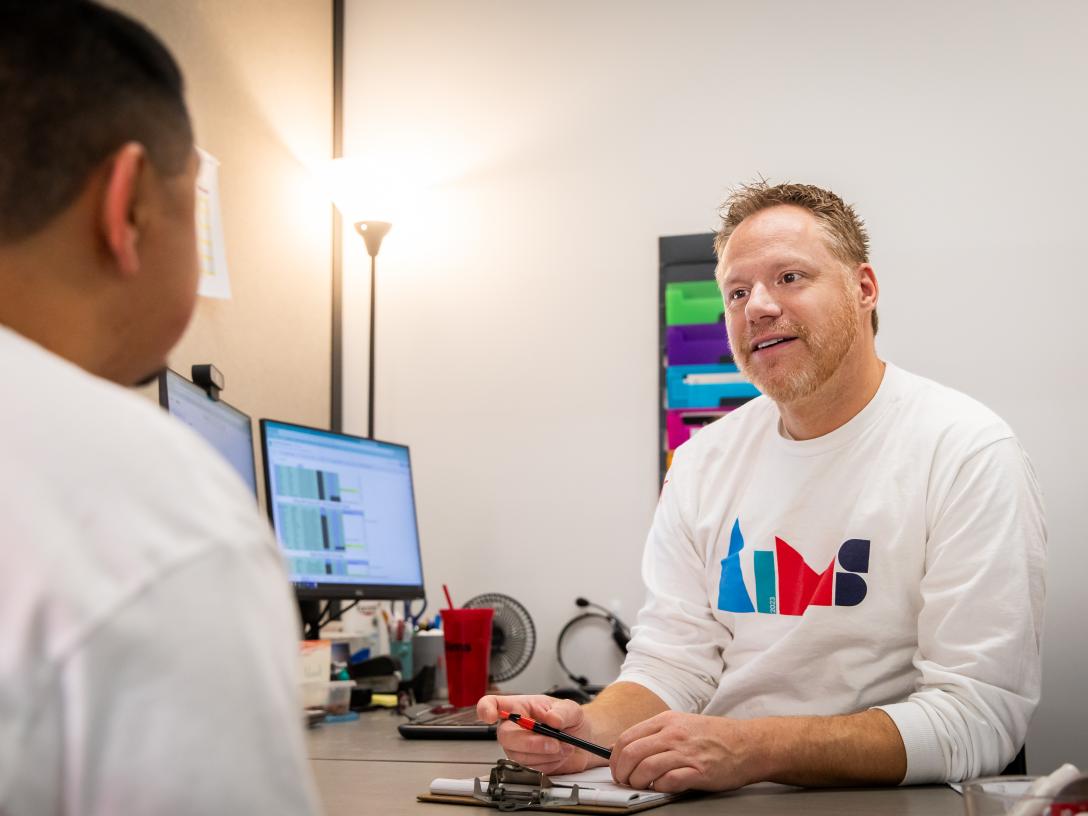
Your Syllabi (every semester)
Larry’s advice: read the syllabus like a contract for success. It’s the map to content, grading, deadlines and how to get help. Still confused? Ask. That question is how relationships start.
Advisors are Your Friend
Larry’s team is rolling out a coaching-based approach, so you'll continue working with someone who knows your story. Treat advisors like partners, not checkout clerks. Jeremy adds two power moves:
- Book early (late September, early October or in February—quieter advising seasons).
- Email your goals and questions in advance so they can prepare and block enough time.
Picking Classes and Professors
- Listen to students you trust. Word-of-mouth beats a random online rant. One person’s “worst class ever” might be your favorite.
- Follow good people. If you click with a professor, take more classes from them.
- Join the club. Laura met instructors running education clubs and got to know their teaching style before enrolling.
- Use your advisor strategically. Bring your interests and learning preferences; let them help you build a schedule that suits your work style.
If You’re Struggling to Ask for Help
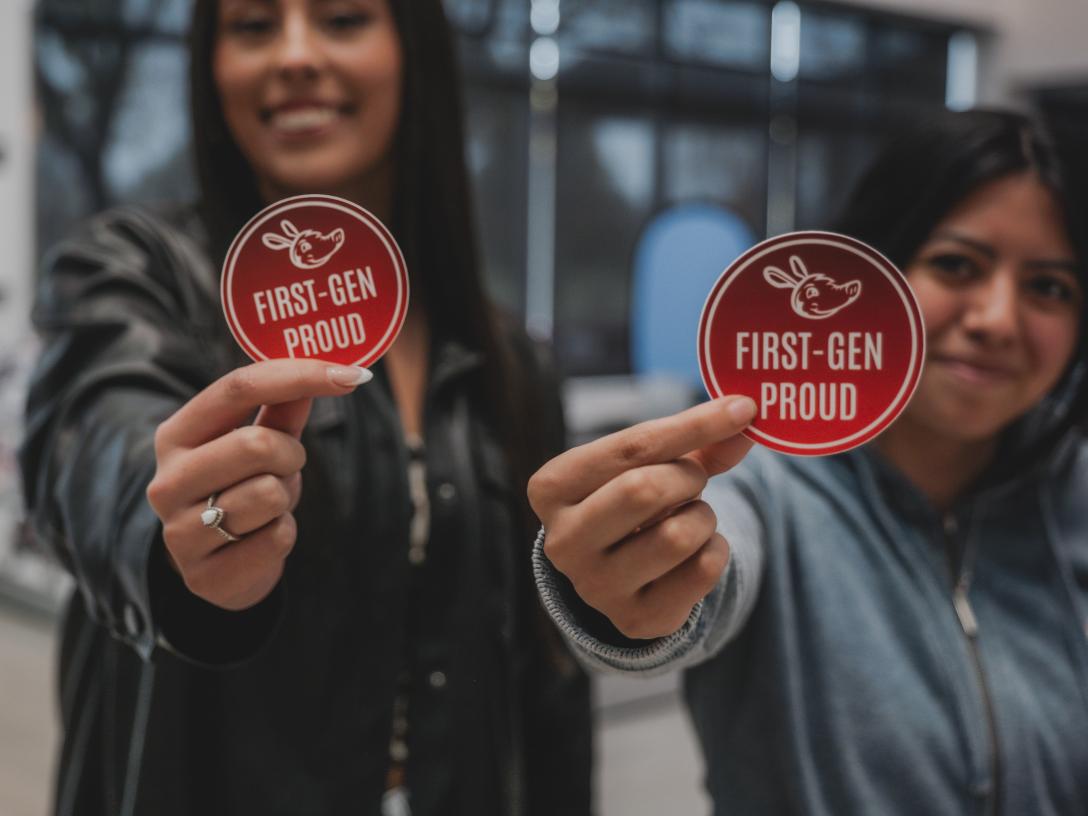
- Use a bridge person. If one instructor’s response stung, try another trusted faculty or staff member. Don’t internalize one bad interaction.
- Find your tribe. Peers, professors and coaches are people who remind you why you started and won’t let you forget it.
- Prove the past wrong. Laura’s mantra: You can do hard things. Old messages don’t get to decide your future.
- Remember: support is not charity. It’s a strategy. The strongest students use it early and often.
- TRIO Student Support Services guides many Aims first-gen students to achieve maximum academic success and career readiness.
Did you know that 49 percent of Aims students identify as first-generation college students? Whether you fall into that category or not, this panel provided excellent inspiration and advice for all pursuing higher education.
